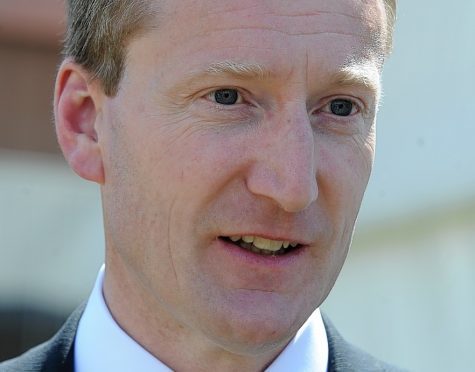Shetland MSP Tavish Scott has clashed with Loganair over claims the firm had “walloped” passengers with costly fare prices for years.
The Liberal Democrat made the claim after he called on the firm to lower fares in wake of a downturn in global oil prices which is currently around $60 a barrel.
Mr Scott spoke out after Asda, Morrisons and Sainsbury’s reduced petrol and diesel prices by 2p a litre yesterday while Tesco’s similar 2p-a-litre cut has already taken effect.
The reductions mean Asda customers will pay no more than 105.7p a litre for petrol, with diesel being 112.7p a litre.
Mr Scott said it was time for airlines to follow suit but a spokesman for Loganair, which links Orkney, Shetland and the Western Isles with Inverness, Aberdeen, Edinburgh and Glasgow, said the firm had not “walloped” passengers with fuel surcharges since 2006.
Mr Scott, who has raised the issue with the company said: “Shetland garages have reflected falling oil prices at local petrol pumps but I have seen no difference in the cost of flying.
“All the airlines walloped passengers with fuel surcharges in past years – these were fuel cost rises passed on to passengers.
“Shetlanders still pay full fare tickets of £400 plus to get to the Scottish mainland and Loganair also get the air discount scheme money that cuts ticket prices by 40%.
“So it is time that these savings were passed on to island travellers.”
Mr Scott said he expected Loganair to “reflect the reality of oil prices” in fare costs.
A spokesman for Loganair said: “Contrary to Mr Scott’s statement, Loganair, unlike many airlines, has not ‘walloped passengers with fuel surcharges in past years’.
“In fact no fuel surcharges have been applied by Loganair since 2006.
“The recent and dramatic reduction in oil prices was completely unforeseen.
“Loganair, in common with most airlines, manages the risk of fuel price changes by purchasing its fuel up to one to two years in advance.”
The spokesman said airlines would not see the benefit of falling prices – calculated in US dollars – for an extended time.
“With the recent decline in sterling against the dollar this has had an impact on the final price in sterling,” he added.
